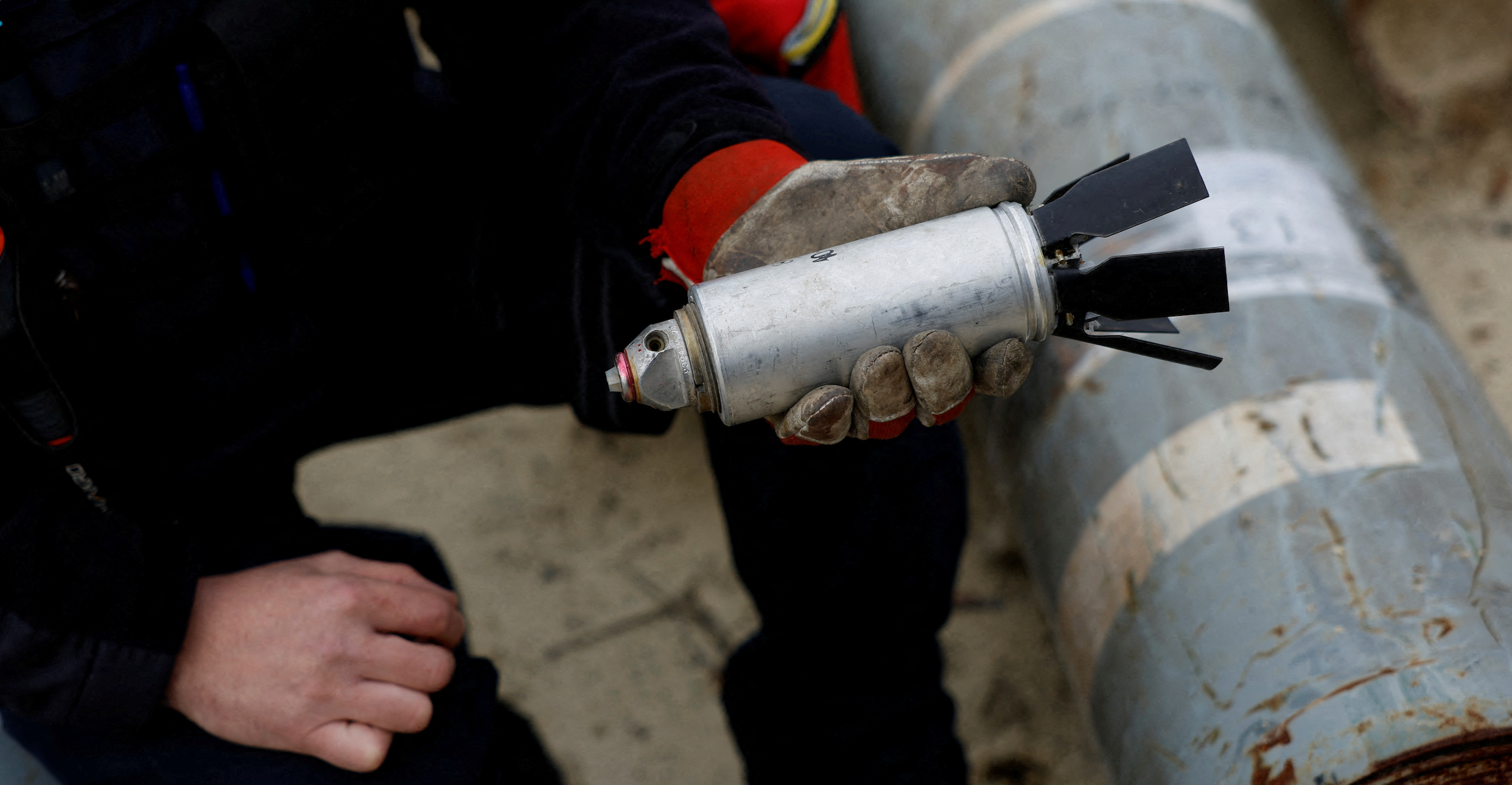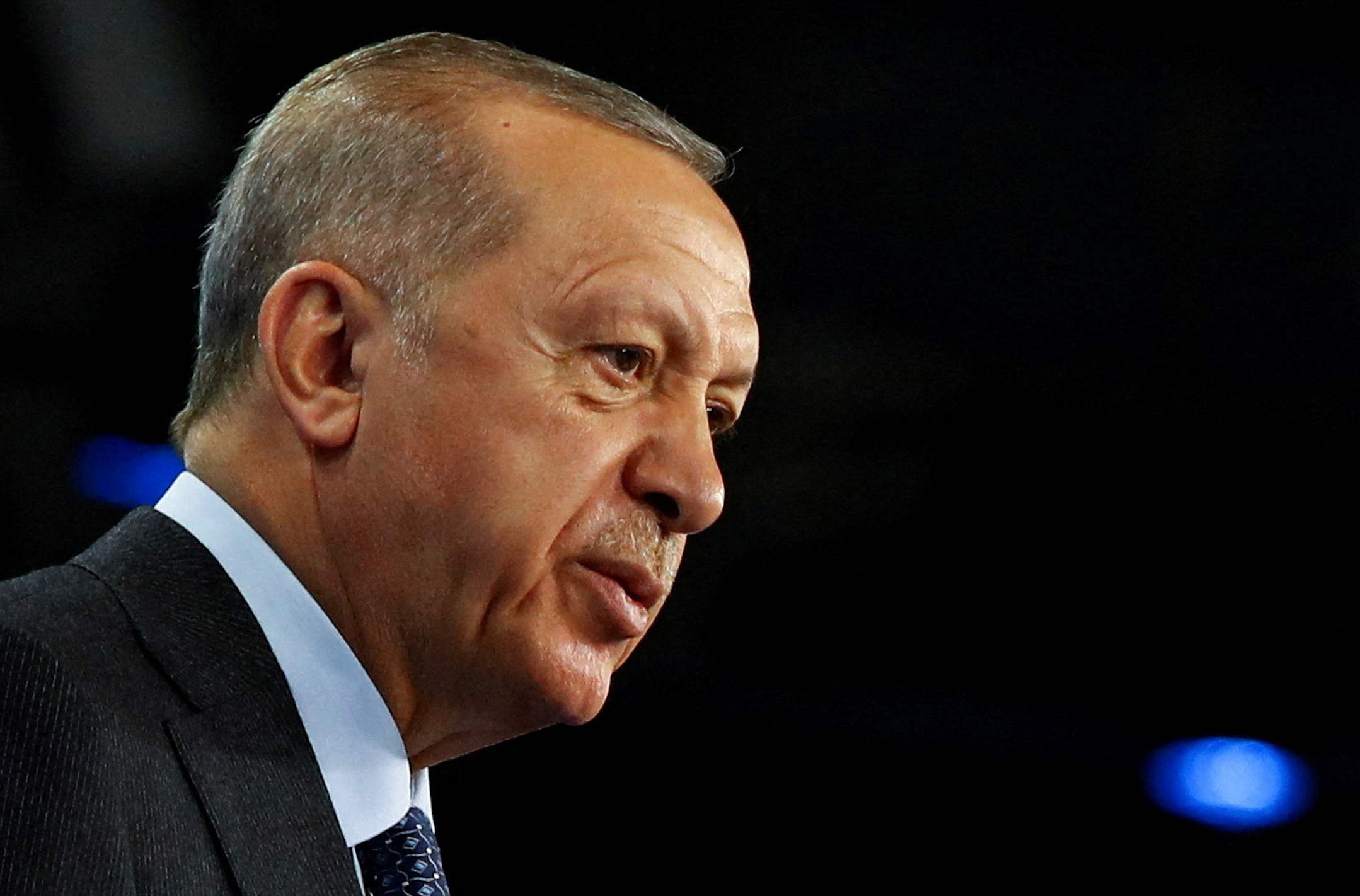
US congressional Democrats raise concerns on cluster bombs for Ukraine
PHOTO CAPTION: Ukrainian military serviceman Igor Ovcharruck holds a defused cluster bomb from an MSLR missile, among a display of pieces of rockets used by Russian army, that a Ukrainian munitions expert said did not explode on impact, in the region of Kharkiv, Ukraine, October 21, 2022. REUTERS/Clodagh Kilcoyne/File Photo
By Kanishka Singh and Joey Roulette
WASHINGTON (Reuters) -Democratic U.S. Senator Tim Kaine and Representative Barbara Lee raised concerns on Sunday over the decision by President Joe Biden's administration to send cluster bombs to Ukraine to combat the Russian invasion.
The United States said on Friday it would supply Kyiv with the widely banned bombs as part of a new $800 million security package that brings total U.S. military aid to more than $40 billion since Russia's invasion of Ukraine began in February 2022.
Rights groups and United Nations Secretary-General Antonio Guterres have questioned Washington's decision on the munitions.
Kaine said he had "some real qualms" about the U.S. decision to send cluster bombs to Ukraine because it could inspire other countries to sidestep an international convention barring the munitions.
"It could give a green light to other nations to do something different as well," Kaine told Fox News Sunday. However, he added he "appreciates the Biden administration has grappled with the risks."
"They're not gonna use these munitions against Russian civilians," Kaine, who sits on the Senate Armed Services Committee, said of Ukraine's potential use of those bombs, adding Kyiv had given assurances that were outlined by the White House.
Jake Sullivan, White House national security adviser, told reporters on Sunday that Ukraine in its written assurances said it would not use cluster bombs in Russia or in populated areas.
Cluster munitions are prohibited by more than 100 countries. Russia, Ukraine and the United States have not signed on to the Convention on Cluster Munitions, which bans production, stockpiling, use and transfer of the weapons.
They typically release large numbers of smaller bomblets that can kill indiscriminately over a wide area. Those that fail to explode pose a danger for decades after a conflict ends.
Lee urged the Biden administration to reconsider the step.
"Cluster bombs should never be used. That's crossing a line," she told CNN's "State of the Union" on Sunday, adding the United States risked losing its "moral leadership" by sending cluster bombs to Ukraine.
White House national security spokesman John Kirby defended the decision and said the United States was very focused on demining efforts in Ukraine.
"We are very mindful of the concerns about civilian casualties and unexploded ordnance being picked up by civilians or children and being hurt," Kirby said in an interview with ABC's "This Week."
"But these munitions do provide a useful battlefield capability," he said. He added that Russia is using cluster munitions in Ukraine and "indiscriminately killing civilians," while the Ukrainians will be using them to defend their own territory.
Support for Ukraine amid Russia's invasion has mostly been bipartisan in the United States. The Biden administration and many U.S. lawmakers from the Democratic and Republican parties have defended the decision to send the controversial weapons to Ukraine, saying they were needed to accelerate Kyiv's counteroffensive.
Republican U.S. Representative Michael McCaul, chairman of the House of Representatives Foreign Affairs Committee, said Ukraine's counteroffensive was going slowly and that the cluster bombs could be a "game changer" for the Ukrainians.
"They would be a game changer in the counteroffensive. And I'm really pleased the administration has finally agreed to do this," McCaul told CNN on Sunday.
(Reporting by Kanishka Singh and Joey Roulette, Additonal reporting by Doina Chiacu; Editing by Scott Malone and Andrea Ricci)









